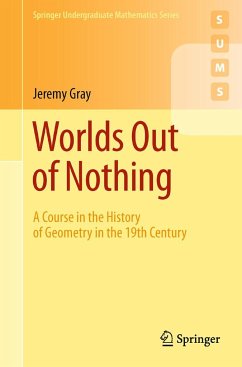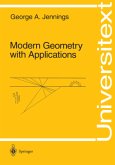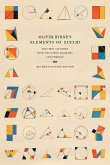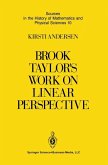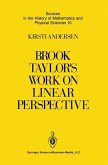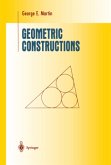Based on the latest historical research, Worlds Out of Nothing is the first book to provide a course on the history of geometry in the 19th century. Topics covered in the first part of the book are projective geometry, especially the concept of duality, and non-Euclidean geometry. The book then moves on to the study of the singular points of algebraic curves (Plücker's equations) and their role in resolving a paradox in the theory of duality; to Riemann's work on differential geometry; and to Beltrami's role in successfully establishing non-Euclidean geometry as a rigorous mathematical subject. The final part of the book considers how projective geometry rose to prominence, and looks at Poincaré's ideas about non-Euclidean geometry and their physical and philosophical significance.
Three chapters are devoted to writing and assessing work in the history of mathematics, with examples of sample questions in the subject, advice on how to write essays, and comments on whatinstructors should be looking for.
Three chapters are devoted to writing and assessing work in the history of mathematics, with examples of sample questions in the subject, advice on how to write essays, and comments on whatinstructors should be looking for.
From the reviews:
"Gray's new book will become both a classic reference and a model on how to write a useful course text. With original source material woven in with historical context, this book is a fun read as it examines geometry historically as a connected sequence of diverse ideas ... . it includes a useful index and extensive bibliography. If you enjoy mathematics, buy this and read it! Summing Up: Highly recommended. General readers; lower-division undergraduates through faculty." (J. Johnson, CHOICE, Vol. 44 (11), July, 2007)
"Gray (Open Univ., UK) does it again. Complementing his works on Jinos Bolyai or the world of different geometries, Gray's new book will become both a classic reference and a model on how to write a useful course text. With original source material in with historical context, this book is a fun read as it examines geometry historically as a connected sequence of diverse ideas: duality in projective geometry, the problem of parallels in non-Euclidean geometries, the nature of surfaces in differential geometry, and concern for geometry as a true "measure" of space (physical or philosophical). Documenting mathematicians' contributions within this historical sequence, the book becomes a fascinating Who's Who: Poncelet, Desargues, Pascal, Gergonne, Saccheri, Lambert, Legendre, Gauss, Bolyai, Lobachevski, Möbius, Plücker, Beltrami, Klein, Poincaré, Hilbert, and Einstein. Finally, the book's unusual twist is its inclusion of three chapters on writing and critical reading about the history of mathematics; these chapters alone make the book valuable to those helping students improve as writers of mathematics. An offshoot of a University of Warwick course, it includes a useful index and extensive bibliography. If you enjoy mathematics, but this and read it! Summing up: Highly recommended. General readers; lower-division undergraduates through faculty." - J. Johnson, Western Washington University
"This isan outstanding text for the well-prepared student who has a basic knowledge of linear algebra, matrix theory, calculus of several variables, and geometry. ... an important addition to the mathematical and historical literature. Albeit primarily a textbook for a one-semester upper level or graduate course in the history of mathematics, it will be appreciated and enjoyed by those interested in geometry, history, philosophy, and pedagogy. ... The book contains an excellent bibliography. ... it provides a useful reference for anyone interested in geometry." (James J. Tattersall, Mathematical Reviews, Issue 2008 b)
"The 19th century was certainly an exciting time in geometry. To chronicle all of that excitement in one place is a monumental task; to have done so with real clarity and attention to detail, as Jeremy Gray has done, is an impressive achievement. ... Gray has succeeded on several levels: as a historical chronicler, as a mathematical scholar, and as an advisor to teachers. Worlds Out Of Nothing is a first-rate addition to the geometry enthusiast's bookshelf." (Mark Bollman, MathDL, January, 2008)
"The book under review provides a course on the history of geometry in the 19th century. ... In the book the emphasis is put on understanding the historical significance of the new geometry. In this way it can fill the gap between what is usually taught today in geometry ... and the historical considerations, it can provide the historical and philosophical background of the geometry developed in the 19thcentury." (Roman Murawski, Zentralblatt MATH, Vol. 1205, 2011)
"Gray's new book will become both a classic reference and a model on how to write a useful course text. With original source material woven in with historical context, this book is a fun read as it examines geometry historically as a connected sequence of diverse ideas ... . it includes a useful index and extensive bibliography. If you enjoy mathematics, buy this and read it! Summing Up: Highly recommended. General readers; lower-division undergraduates through faculty." (J. Johnson, CHOICE, Vol. 44 (11), July, 2007)
"Gray (Open Univ., UK) does it again. Complementing his works on Jinos Bolyai or the world of different geometries, Gray's new book will become both a classic reference and a model on how to write a useful course text. With original source material in with historical context, this book is a fun read as it examines geometry historically as a connected sequence of diverse ideas: duality in projective geometry, the problem of parallels in non-Euclidean geometries, the nature of surfaces in differential geometry, and concern for geometry as a true "measure" of space (physical or philosophical). Documenting mathematicians' contributions within this historical sequence, the book becomes a fascinating Who's Who: Poncelet, Desargues, Pascal, Gergonne, Saccheri, Lambert, Legendre, Gauss, Bolyai, Lobachevski, Möbius, Plücker, Beltrami, Klein, Poincaré, Hilbert, and Einstein. Finally, the book's unusual twist is its inclusion of three chapters on writing and critical reading about the history of mathematics; these chapters alone make the book valuable to those helping students improve as writers of mathematics. An offshoot of a University of Warwick course, it includes a useful index and extensive bibliography. If you enjoy mathematics, but this and read it! Summing up: Highly recommended. General readers; lower-division undergraduates through faculty." - J. Johnson, Western Washington University
"This isan outstanding text for the well-prepared student who has a basic knowledge of linear algebra, matrix theory, calculus of several variables, and geometry. ... an important addition to the mathematical and historical literature. Albeit primarily a textbook for a one-semester upper level or graduate course in the history of mathematics, it will be appreciated and enjoyed by those interested in geometry, history, philosophy, and pedagogy. ... The book contains an excellent bibliography. ... it provides a useful reference for anyone interested in geometry." (James J. Tattersall, Mathematical Reviews, Issue 2008 b)
"The 19th century was certainly an exciting time in geometry. To chronicle all of that excitement in one place is a monumental task; to have done so with real clarity and attention to detail, as Jeremy Gray has done, is an impressive achievement. ... Gray has succeeded on several levels: as a historical chronicler, as a mathematical scholar, and as an advisor to teachers. Worlds Out Of Nothing is a first-rate addition to the geometry enthusiast's bookshelf." (Mark Bollman, MathDL, January, 2008)
"The book under review provides a course on the history of geometry in the 19th century. ... In the book the emphasis is put on understanding the historical significance of the new geometry. In this way it can fill the gap between what is usually taught today in geometry ... and the historical considerations, it can provide the historical and philosophical background of the geometry developed in the 19thcentury." (Roman Murawski, Zentralblatt MATH, Vol. 1205, 2011)

